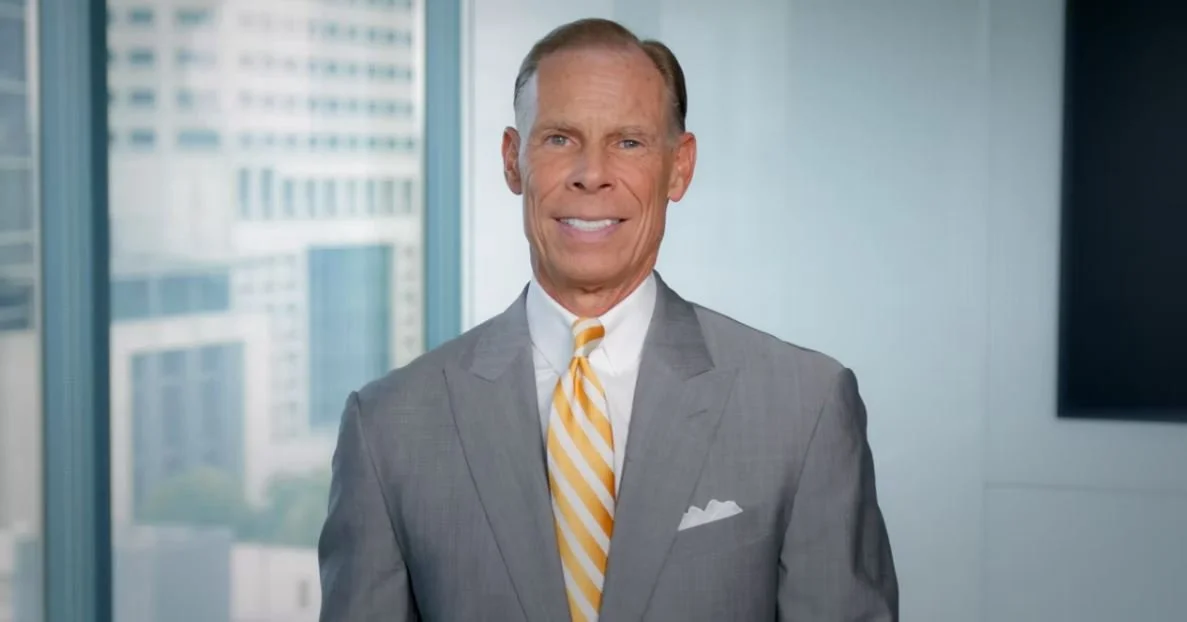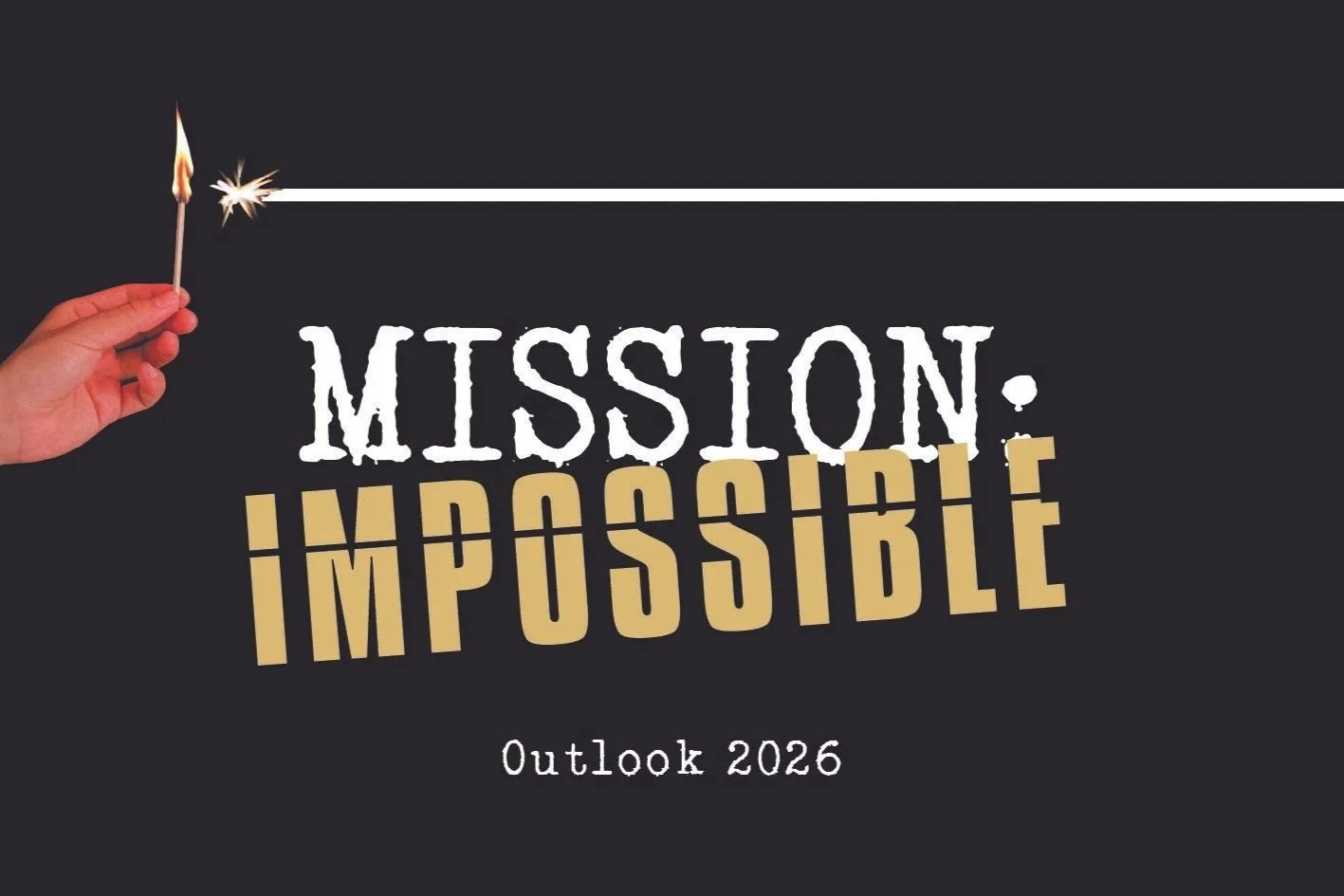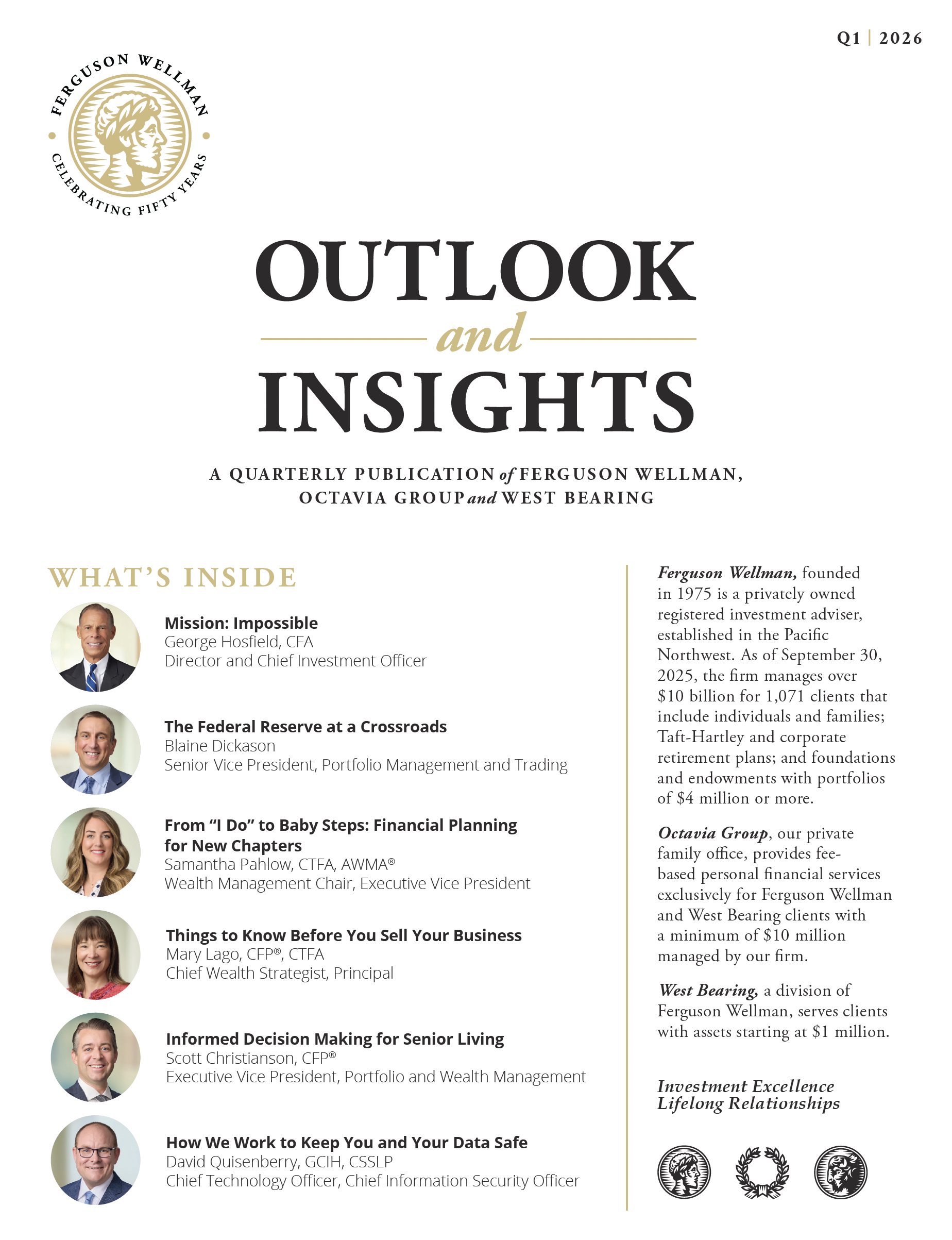It was an exceptionally busy week for economic data, and by and large, the news this week was very favorable. After a period of weakness in the second half of 2025, the labor market appears to be finding its footing.
Jobs on Hold, Software Sold
It is a common refrain that markets hate uncertainty, and this week has delivered plenty. On both the labor front and in technology, the movers in the capital markets were driven by a combination of delayed data, softening employment signals and a sharp repricing in the stock prices of software and services companies.
2026 Investment Outlook Webinar Video: Mission: Impossible
Annual presentation from Ferguson Wellman sharing our views for the year regarding the global economy and capital markets, as well as a planning update from our wealth management team. The program originally aired on Wednesday, February 4, 2026.
Rates on Hold, Leadership in Focus
This week, financial markets were shaped by a convergence of monetary policy continuity and rising attention to Federal Reserve leadership. At its January meeting, the Federal Reserve voted to hold interest rates steady, marking the first pause since it began easing policy in mid-2025.
2026 Wealth Planning Guide
The Housing Math Problem
Investors returned from the long weekend to something more jarring than the usual post-holiday lull: a burst of geopolitical theater that triggered the sharpest pullback in the S&P 500 since last October.
New Year, New Savings Contribution Limits: What to Know for 2026
As we head into 2026, you may be navigating the year-over-year changes and asking yourself: What has changed and what should I care about? From retirement account contribution limits to rollover rules and required distributions, a few key updates are worthy of your attention.
The Robots Have Landed
Not too long ago, robots were mostly considered science fiction and far-fetched possibilities. Now the future that once felt distant showed up at the Consumer Electronic Show (CES) this year in Las Vegas, where companies gather to showcase their latest inventions.
Three in a Row — Is 2026 the Market’s Fourth Encore?
2025 is officially in the books, marking the third consecutive year of double-digit gains for the market. It wasn’t just a good year for returns — it was an eventful one, too. At the start of 2025, our optimism wasn’t based solely on sentiment; the data supported it.
Ferguson Wellman Capital Management Acquires Vancouver-Based Great Northern Asset Management, Expanding its Regional Reach
Ferguson Wellman Capital Management, an independent investment firm based in Portland, Oregon, has announced the acquisition of Great Northern Asset Management as of January 1, 2026. The Great Northern office will remain in downtown Vancouver, Washington. This will be Ferguson Wellman’s second office in Washington.
How We Work to Keep You and Your Data Safe
We participate in information sharing and threat awareness through membership in the FS-ISAC, a 25-year-old nonprofit with 5,000 financial sector members. This membership includes daily threat bulletins, participation in working groups around key areas such as AI security and fraud, and two main conferences annually for best practices and learning.
Informed Decision Making for Senior Living
As we grow older, many of us will need to decide where to live next when our current home becomes too difficult to manage, and assistance is required. Deciding when and where to move can feel daunting, as can the various financial arrangements available to pay for the move.
Things to Know Before You Sell Your Business
Selling a business is one of the most significant decisions an entrepreneur can make. Aside from being a meaningful financial transaction, it is also a life transition that impacts your legacy, family, employees and future.
Why Unhappy Consumers Keep Spending
As New Year’s celebrations wrap up and 2026 begins, the U.S. economy is sending signals that are difficult to reconcile: consumer sentiment is deeply negative, yet spending remains resilient.
From “I Do” to Baby Steps: Financial Planning for New Chapters
Two joyful milestones—marriage and the arrival of a child—bring celebration, change and financial complexity. These transitions also create important opportunities to strengthen your financial foundation and ensure that the plans you have in place evolve to support the people you love.
The Federal Reserve at a Crossroads
After serving two full terms as chairman of the Federal Reserve, Jerome Powell enters 2026 with just three Fed meetings remaining under his leadership. Beginning in June, a new Fed Chair will preside over setting monetary policy for our country. While the list of potential nominees has been fluid, a critical step in this process is that the nominee, and likely new chair, gains the confidence of a wide variety of stakeholders.
Mission: Impossible
Investors had to contend with plenty of noise in 2025. Tariff uncertainty disrupted markets, the longest government shutdown in U.S. history delayed economic data and the Fed resumed its easing cycle.
Outlook and Insights First Quarter 2026
Closing the Book on 2025
This week, investors and capital markets received a dose of holiday cheer as major U.S. stock indices recorded back-to-back highs in the two days before Christmas market closures. Stronger-than-expected economic growth during the summer helped drive the momentum, offsetting fresh evidence that consumers are growing more uncertain about their economic futures.
Fringe Finance: Stablecoins
At Ferguson Wellman, the alternative assets desk (my primary role) tends to be where the uncommon client questions land. Alternative assets, in our world, are basically anything that is not a publicly traded stock or bond, and our clients come to us with terrific questions that often sit in this "other" bucket.























